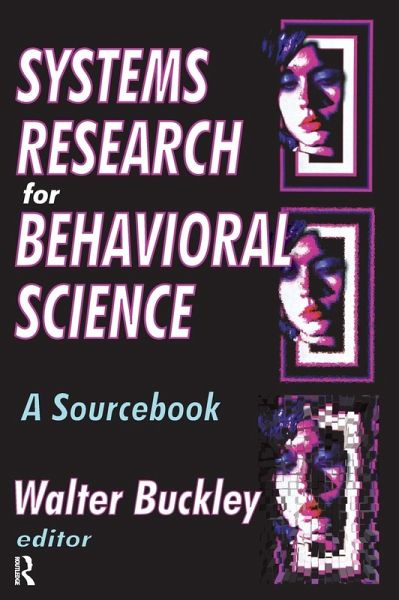
Systems Research for Behavioral Science
A Sourcebook
Herausgeber: Buckley, Walter
Versandkostenfrei!
Versandfertig in 1-2 Wochen
165,99 €
inkl. MwSt.

PAYBACK Punkte
83 °P sammeln!
Systems Research for Behavioral Science will be of interest to those in any discipline concerned with developments in science














